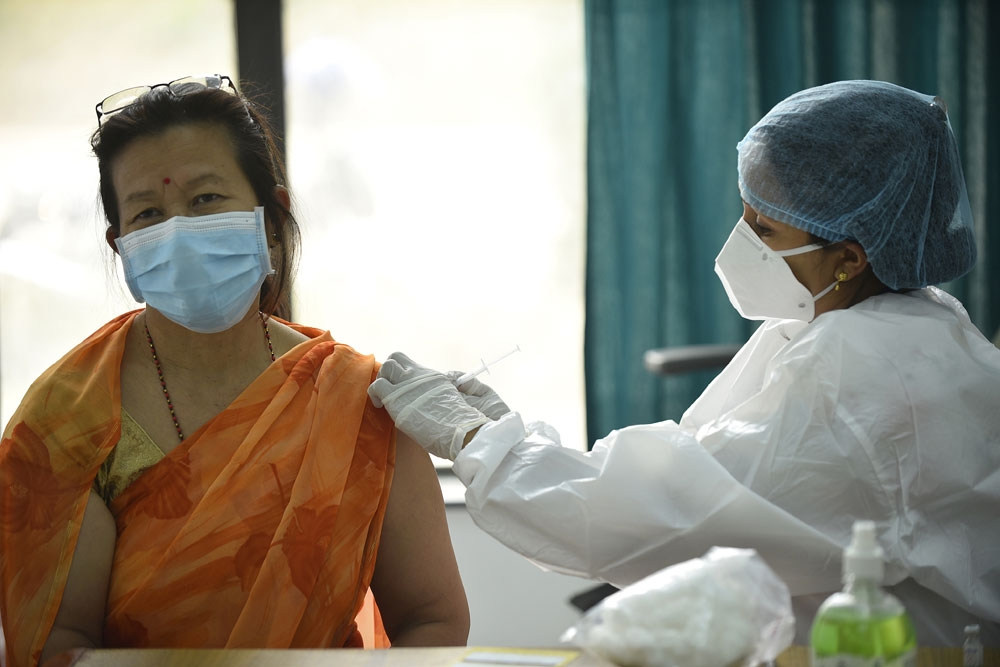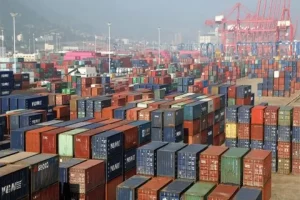Developed countries, in partnership with India, need to step up their game to support Nepal, which is staring at significant shortages of Covid-19 vaccines.
Having vaccinated a substantial number of their citizens, countries such as the United States and the United Kingdom have surplus stocks of jabs. In fact, the WHO has appealed to the developed countries, not to begin vaccinating children. Instead, these jabs can be sent to help developing countries, such as Nepal, to make up for their shortfall.
India’s massive and unexpected second wave of Covid-19 has upset previous plans. Countries such as Bangladesh and Nepal which were looking for Indian vaccines, are being forced to look elsewhere as the demand for jabs in India has exponentially surged. The Indian situation may ease only later this year. China, another vaccine maker is also finding it hard to step into the breach, because of its own prior commitments.
Confronting a major health crisis, Nepal has issued a worldwide appeal, including the United States and the United Kingdom—countries with whom India is in touch to define a global response to the ever-evolving pandemic.
An editorial in The Kathmandu Post titled, Help us, world, says that the daily infection rate remains around 7,300. With an increase in the number of cases, hospitals are flooded with patients leading to massive oxygen shortages. The editorial quoted the United Nations Resident Coordinator in Nepal, Sara Beysolow Nyanti, appealing to the international community to send vaccines to the country.
One of the biggest appeals has been made by Prime Minister KP Sharma Oli through his opinion piece in the UK's The Guardian newspaper.
Oli's opinion piece published on May 10, says: "As I write this, my country is battling a new and brutal wave of the covid-19 pandemic. The rise in the number of infections poses a serious challenge to our brave doctors, nurses, other care providers, citizen volunteers and the entire health service system.
… But due to the constraints of resources and infrastructure, the pandemic is turning out to be an overwhelming burden. I have, therefore, appealed to the international community to help us with vaccines, diagnostic tools, oxygen kits, critical care medicines and equipment, to support our efforts to save lives. Our urgent goal is to stop preventable deaths occurring", says Oli in his opinion for the British newspaper.
Similar appeals have been made by a cross section of the Nepali community asking the world to help the country battle the surge in virus numbers.
Last week, people came together under the umbrella of Covid Alliance for Nepal and launched an online petition asking the US to provide vaccines after the US announced that it would release 60 million AstraZeneca doses globally. The petition is being led by resident Nepalis as well as Nepali citizens living in the US.
The alliance consists of 'influential people' – healthcare professionals in the US, journalists and activists. The Kathmandu Post quoted one of the activists, Sakar Pudasaini as saying: "The only effective solution is the vaccine. We cannot wait until the deaths are in thousands before we act.” Pudasaini added that people will have to act now so that the virus does not reach villages where little infrastructure exists.
The activists are optimistic that the US will provide the medical help that Nepal needs as it has considerable resources.
In one such massive appeal, 83 members of the Nepalese civil society have written to China asking for vaccines, oxygen supplies and other Covid-19 related supplies. Nepali newspaper The Annapurna Express said: "This is perhaps the first instance of the Nepali civil society making such an appeal with China, even as there have been many instances of similar appeals to various western countries."
Analysts say that control over vaccine patents by Big Pharma companies is largely to blame for the huge vaccine shortages in the Global South, including Nepal. But the first breakthrough has been achieved after US President Joe Biden earlier this month endorsed a joint filing in the World Trade Organisation (WTO) by India and South Africa to suspend Big Pharma patents. Once that is done, the flow of vaccines, which can be locally manufactured, can be untapped.
Last month, Prime Minister Narendra Modi had discussed lifting the patent protections of coronavirus vaccines with Biden, so that vaccine shortfalls triggered by the deadly second wave of Covid-19 could be bridged.
“Prime Minister Narendra Modi also informed President Biden about India's initiative at the WTO for a relaxation in the norms of the Agreement on TRIPS to ensure quick and affordable access to vaccines and medicines for developing countries,” said the statement released after the talks. The relaxation would grant governments quicker and more affordable access to the life-saving doses.
"This is a global health crisis, and the extraordinary circumstances of the Covid-19 pandemic call for extraordinary measures," U.S. trade representative Katherine Tai said in a statement, endorsing India and South Africa’s stand to uncork vaccine flows. “The Administration believes strongly in intellectual property protections, but in service of ending this pandemic, supports the waiver of those protections for Covid-19 vaccines," she observed.
Also Read: Biden takes on Big Pharma, backs India’s move for waiving patents on Covid-19 vaccines
Also Read: After Covid surge India can play a key role in ending Vaccine Apartheid practiced by Big Pharma




















